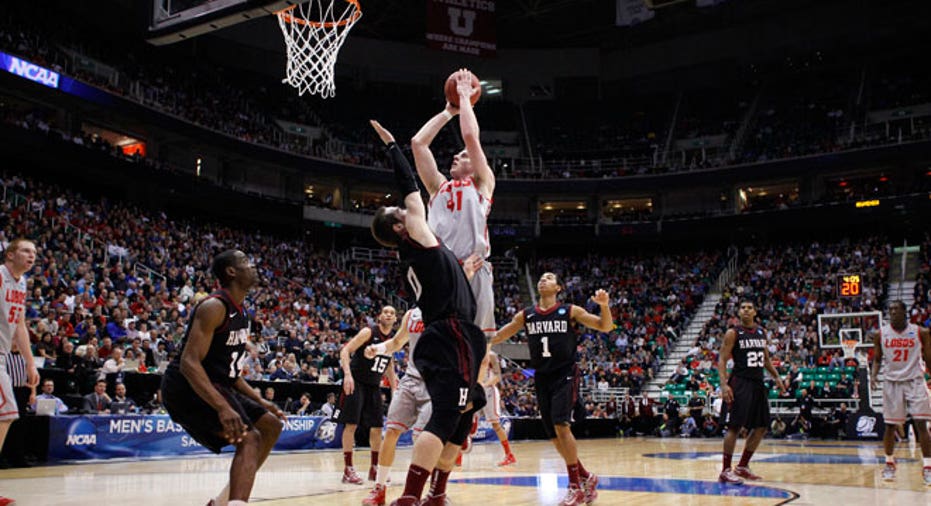March Madness: A Gambler's Paradise

March Madness is in full swing, enticing gamblers nationwide to bet billions of dollars on sixty-eight teams (at least in the beginning) competing for the right to be crowned champion of men’s Division I basketball. About $12 billion will be wagered during the three weeks of the tournament, making March Madness the biggest sports gambling event of the year.
Fans methodically pick the teams they think have the best odds of dancing their way to the Final Four, but since the chances of creating a perfect bracket are nearly impossible, it could take hours to select the likely upsets. More than 100 million people are expected to take part in bracket challenges this year.
In fact, more money is wagered during the first four days of the of the men’s March Madness tournament than on the Super Bowl, according to the American Gaming Association. And the total amount wagered this year is expected to rise. A survey by CouponCabin.com reveals that 31% of people planning to bet money on this year’s tournament will wager more than they did last year.
The survey also states that more than 33% of Americans plan to watch at least one March Madness game, with 40% more likely to watch their favorite team and 32% more likely to watch their alma mater.
And businesses are profiting off the March Madness frenzy, as fans look for a sure bet in Las Vegas, the gambling capital of the U.S. The first weekend of the tournament boosted Sin City’s occupancy rate to nearly 98% in 2011, up from its weekend average of 83% according to the Las Vegas Convention and Visitors Authority.
But the popularity of March Madness does not bode well for all businesses nationwide. A report issued by Challenger, Gray and Christmas estimates that in just the first two days of the tournament, distracted employees will cost firms at least $134 million in lost productivity and wages.
Many games early in the tournament air during work hours, and the 19-day tournament distracts employees from their daily tasks. An estimated three million employees will spend one to three hours watching games and checking scores, according to the report, reducing the amount of work being done on a daily basis.
"March Madness will definitely have an impact on the flow of work, particularly during the first week of the tournament," John Challenger, the firm's CEO, said in a statement. "Many companies will probably notice a significant drop in Internet speeds as employees start streaming games and clogging up the network’s bandwidth.”
Another survey released by MSN and Impulse Research found that 66% of workers will be following March Madness games during the work day, with 20% expecting to spend one to two hours following games, 14% spending three to four hours, and 16% planning to spend at least five hours of the work day watching games.
The round of 32 is scheduled to start Saturday at 12:15 p.m. ET.



















